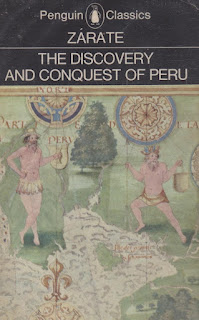My reading list, for a long time, had gap right in the middle. I read comics a lot, then moved into Russian classics (because they were available cheap!) and then discovered the old English classics from my mom's old college books and moved on to more contemporary classics and on and on.
I never realized that I skipped some entire genres and have been reading stuff that have been making my life denser and denser. I never learned to unwind. I am the serious-looking, Sartre-reading, no-nonsense guy. I took a lot of pride in that as well.
Then the winter in Omaha happened. Going by the standard of the Prairie winters, it was a harsh one in 1998. It was full of long nights with deafeningly mad snow-storms, which basically bury you in the apartment.
And it was a lonely winter as well. I had not many friends at that time and it meant ordering more serious stuff from the likes of Huxley, Sartre, Camus, Proust and many more. And the weather played a good sport making sure I don't get out for anything other than real necessities.
It was there Haridas entered. Hari is a nerd of nerds. He is a jolly guy with some real awkward manners which if it were not for his wit, will look weird. He was working for some project in Lincoln. He read, and read stuff that are on the other end of spectrum as far as I was concerned.
 | |||
| (L to R) Hari, Prasanna and me when we drove along the SR1 from LA to SF |
He usually rents a junky second-hand car on those Friday evenings and drive all alone through the dreary prairie lands through snow and sleet and land up in our apartment. And then we talk. Those were exciting nights. We often argued like crazy and if I were angry, he always had a smile on his face which is disarming. We argued about Dostoevsky Vs Wodehouse, capitalism Vs communism etc. I loved arguing because he is not only equal, usually he knew more about stuff as well.
I've never read Wodehouse or Tolkien at that point. But the seeming citadel of the French masters are not to be trifled with. So the night long arguments with storms outside, hosting parties for the rest of the guys (still arguing!), the never ending arguments when shopping for groceries and in the local B&N exhausted us but he is a friend I respected. We flew some places, drove to some but wherever we went, we argued.
That's how I started reading Tolkien. 'The Hobbit' is no more than the normal Ambulimama story. But the LOTR trilogy was mind-boggling. Each character was etched in memory and what history! I actually started reading the back-histories, the stories of the early days in middle-earth and I almost sank without a trace there.
I loved Arwen. When read about Luthien, who forsake her eternal life for love, I was hooked. But of all, it was Eowyn, who catapulted into my imagination. Her love for Aragorn, fighting for Rohan, she kills the witch-king, nurses Faramir back to health and then ultimately marries him. She does nothing out of the ordinary and still retains that aura of the charmness around her.
And then Haridas disappeared. Married to a doctor in D.C, its been years since I heard from him. True to his form, he is missing from FB as well. Where are you, dear friend? Time for more arguments.



